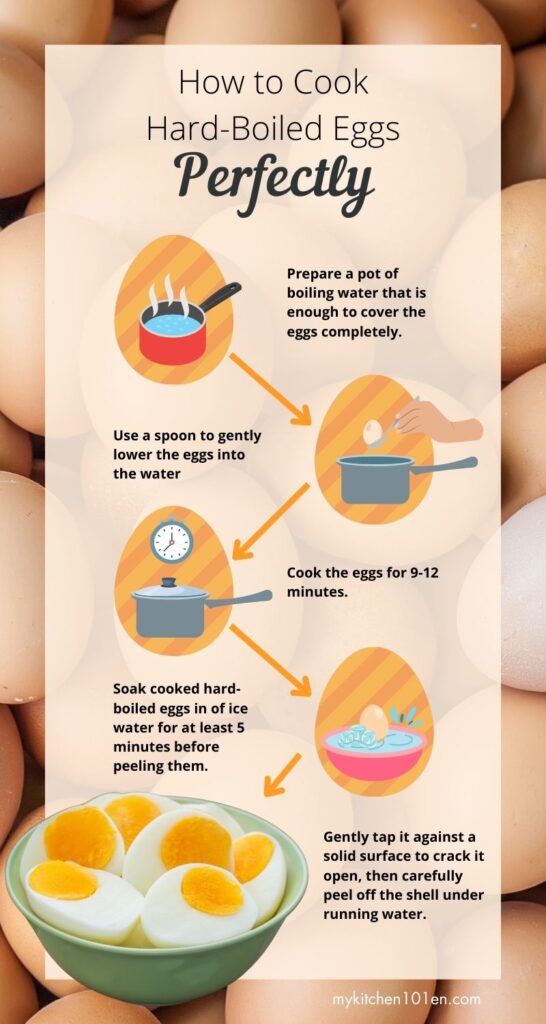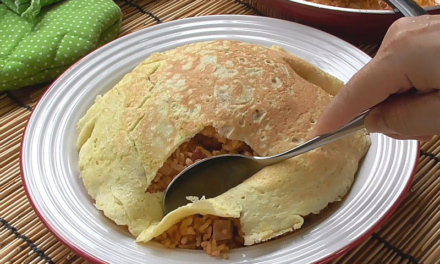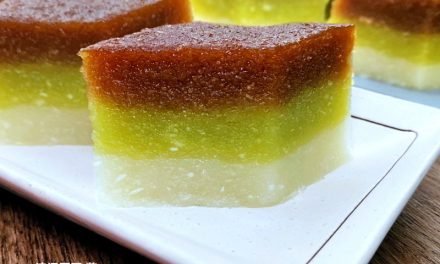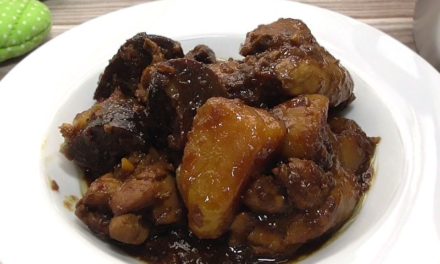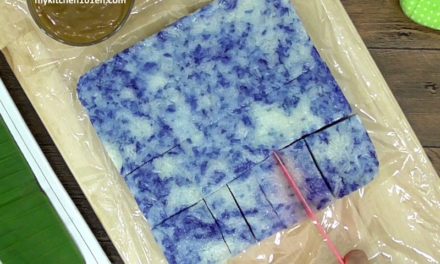Ah, the humble hard-boiled egg. A staple of breakfasts, salads, and snacks for many people, yet so often overlooked and underrated.
Whether you prefer them sliced on toast, chopped up in a salad, or just eaten on their own as a healthy snack between meals – knowing how to cook them properly is essential.
But be honest, who hasn’t had trouble cooking a hard-boiled egg?
How long to boil eggs: The ideal boiling time for a hard-boiled egg is about 9-12 minutes, depending on the size of the egg and desired consistency of the yolk.
Overcooked yolks with green rings around them, shells that won’t peel off without taking half the egg with them…it’s enough to make anyone give up on this delicious delicacy.
No need to fear! You can learn from my expertise on how to cook perfect hard-boiled eggs every time.
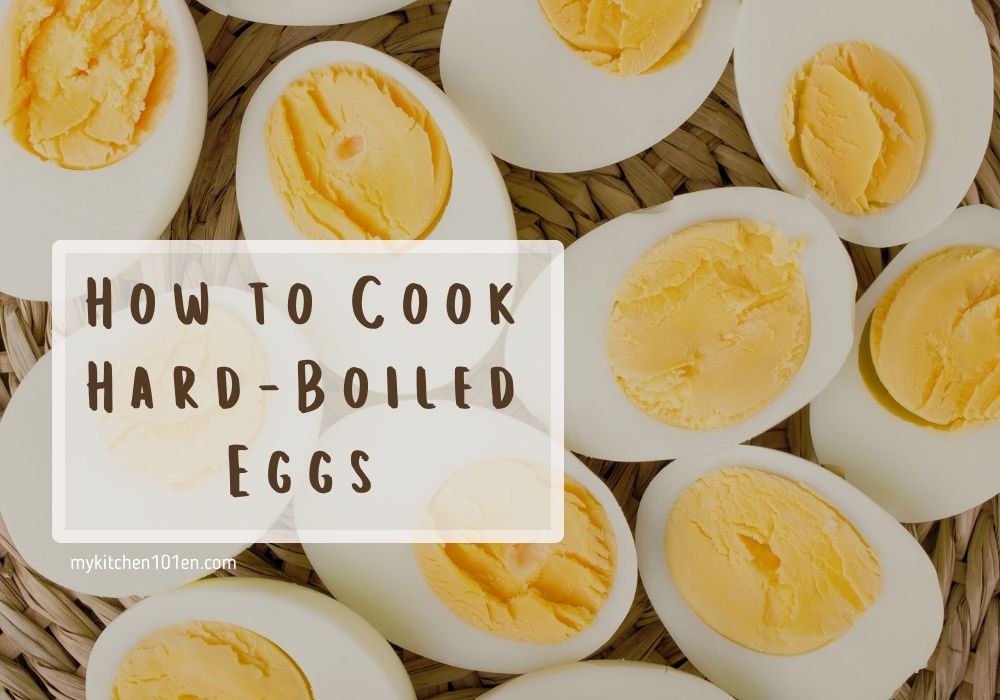

Table of Contents
Importance of Knowing How to Cook Hard-Boiled Eggs
You might be thinking, “Why bother learning how to cook something so simple?”. However, cooking a perfect hard-boiled egg can actually be tricky.
Firstly, as I mentioned earlier – they’re incredibly versatile. They can be eaten on their own or added to recipes for a nutrient boost. They’re also affordable and easy to find at any grocery store.
In addition, if you’re someone who likes to meal prep or cook in bulk for busy weeks—having a batch of hard-boiled eggs ready in your fridge can save time and money. They serve as an easy breakfast alternative or a tasty snack to pack up for lunchtime!
Thus, knowing how to cook hard-boiled eggs is essential for any home cook—You wouldn’t want to look foolish if you didn’t know how to cook an egg or eat it, would you?
Hard-boiled eggs are a good source of protein, vitamins, and minerals. One large hard-boiled egg contains about 6 grams of protein and is a good source of vitamin A, vitamin D, vitamin B12, selenium, and choline.
Basic Equipment Needed
To boil an egg, all you need are these few cooking basics:
- Firstly, and most obviously, you’ll need eggs. But not just any eggs – fresh ones! If possible, purchase eggs from a local farmer or market rather than those that have been sitting on supermarket shelves for weeks.
- In addition to the eggs, you’ll need a pot with water deep enough so that it comes up over the egg when they are placed in.
- A timer is essential too – whether that’s an old-fashioned kitchen timer or using the one on your phone.
- And this is optional but highly recommended – invest in an egg piercer! This handy tool will make poking a tiny hole in the rounded end of each egg easier than using a pin or needle. Why bother? Because it helps prevent cracked shells during cooking!
That’s it folks – with these basic tools at your disposal and the right technique (which we’ll cover next) you’re well on your way to perfecting the humble hard-boiled egg.

- Chinese Tea Eggs Recipe
- Salted Egg Recipe
- How to Cook Artichokes Like a Pro
- Cooking Salmon: A Beginner’s Guide to Perfectly Flaky Fish
Preparing the Eggs

Choosing the Right Eggs
Cooking perfect hard-boiled eggs is all about choosing the right egg.
The first step to boiling eggs is buying some from your local supermarket or grocery store; check the date on egg cartons before you buy them. They should be a few days old, as they will be easier to peel once cooked.
Another important factor when choosing eggs is their size. If you’re cooking for two or three people, medium-sized eggs will suffice. Larger groups—especially those with larger appetites—will need jumbo-sized eggs to accommodate their needs.
Washing and Cleaning the Eggs
Before cooking them, you must wash your eggs thoroughly. Make sure to rinse them under warm water and gently scrub away dirt or bacteria with a soft brush or sponge.
However, it is important not to wash raw eggshells with soap as the porous nature of their shells allows bacteria entry.
Boiling Water
To make perfect hard-boiled eggs, you must know how long it takes for water to boil properly and consistently.
Fill a pot with enough water (ensure it covers all your eggs) and then place it over high heat until boiling point is reached which usually takes 5-10 minutes depending on how much water there is in your pot.
Now move to the next section where we’ll talk about the actual cooking process!
Hard Boil Egg Cooking Process
Placing the eggs in boiling water
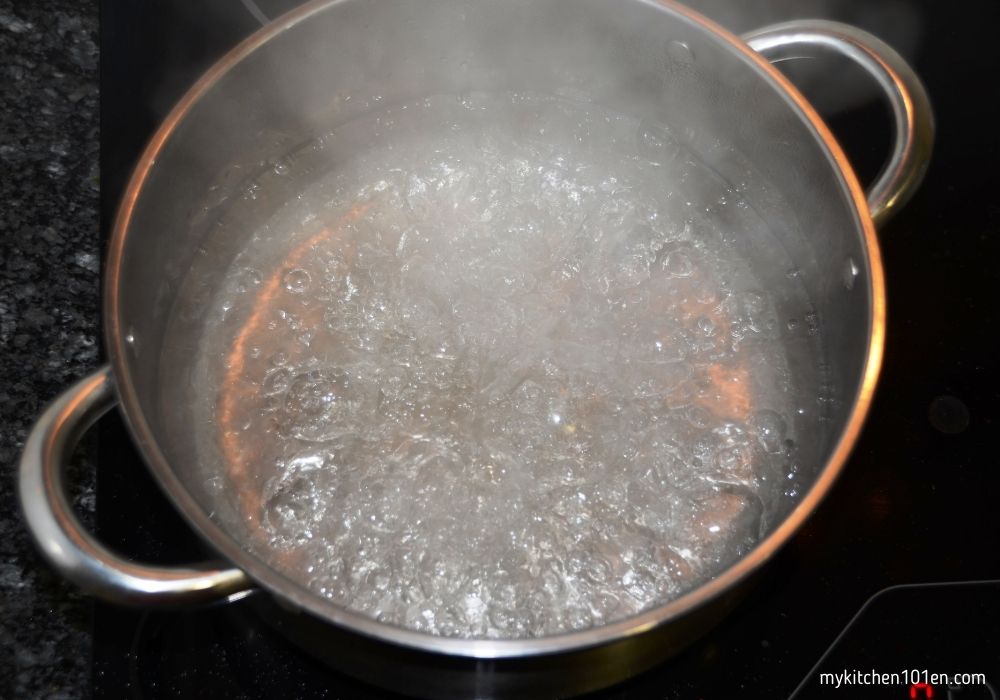
To hard-boil eggs, prepare a pot of boiling water. Make sure there is enough water to cover the eggs completely.
Once boiling point has been achieved carefully place each of your cleaned raw whole in-shell eggs into this boiling water – don’t drop them in as this could cause them to crack against the bottom of the pot or against each other.
Instead, use a spoon to gently lower them into the water. Be careful not to overcrowd the pot with too many eggs as this can cause uneven cooking.
You want each egg to have enough space around it so that it cooks evenly and thoroughly. If necessary, cook the eggs in batches or use a larger pot.
Timing the cooking process
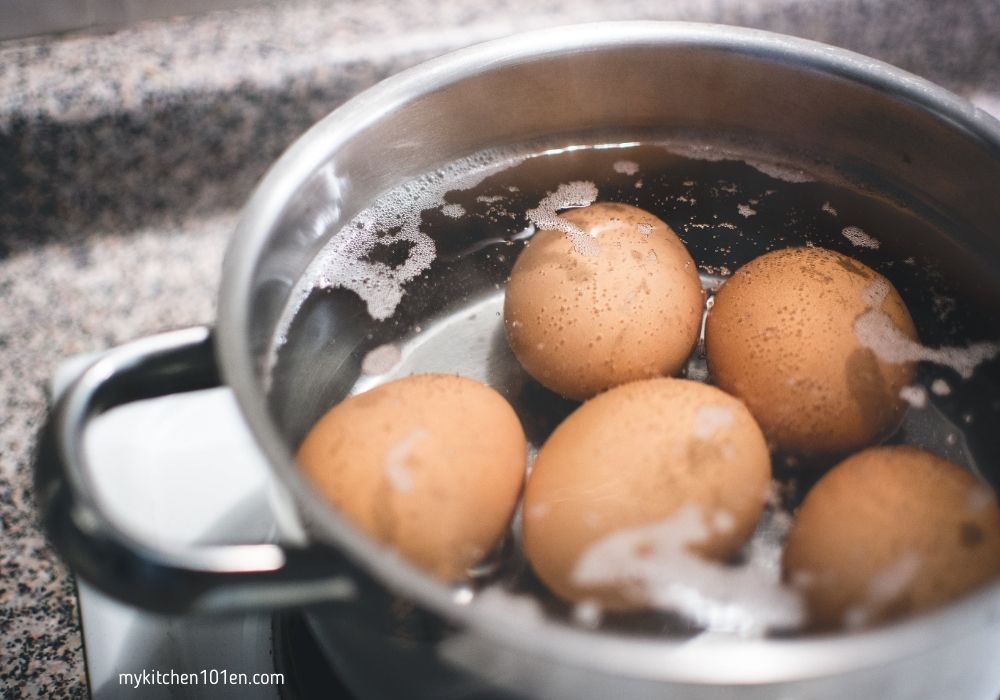
Egg-cooking time varies, depending on factors such as egg size and the degree of doneness desired.
Generally speaking, 9-12 minutes is a good starting point for medium-sized eggs cooked at sea level.
To test if your eggs are done, remove one egg from the boiling water and peel it after it’s cooled.
Cut it in half and check if there is any uncooked yolk or gray ring around the yolk (a sign of overcooking). The yolk should be cooked but still slightly soft in the center while firm on the outside.
Peel hard-boiled eggs
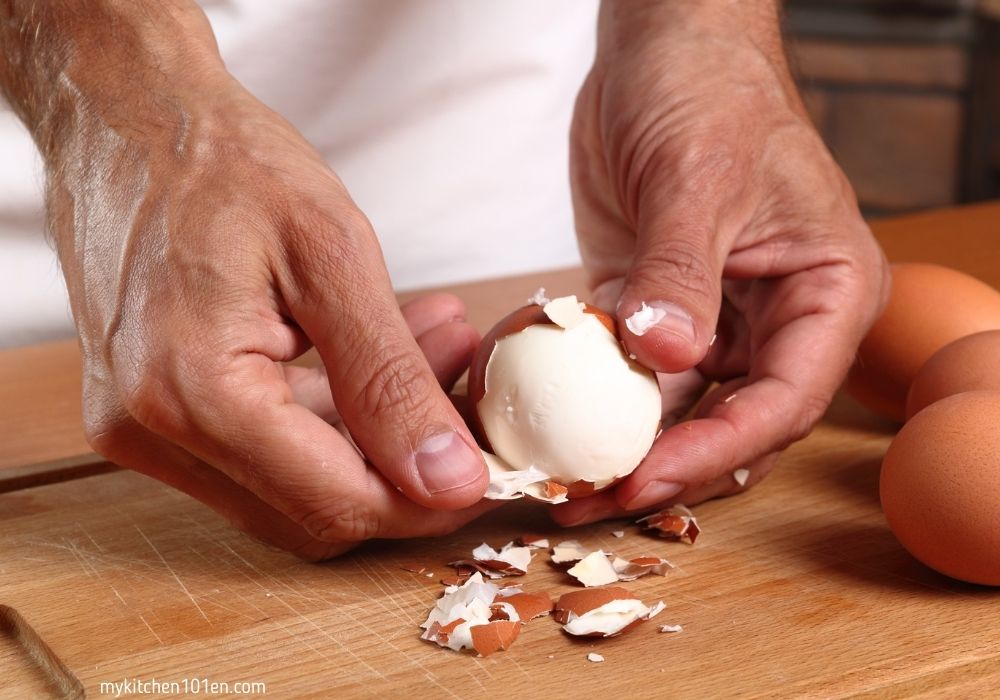
To make peeling the shells off eggs easier, transfer them from the skillet into a bowl of cold water as soon they are done cooking.
Soak cooked hard-boiled eggs in a bowl of ice water for at least 5 minutes before peeling them. Running cold tap water over the eggs will help loosen their shells and make peeling easier.
When peeling off your eggshell, start at the larger end of the egg where there is an air pocket. Gently tap it against a solid surface to crack it open, then carefully peel off the shell under running water.
Eggs that are fresh and have not been refrigerated overnight will be difficult to peel, so use the edge of a spoon to gently pry the cooked egg from its shell.
The Secret Ingredient: Adding salt, vinegar, or baking soda to the boiling water
Do you know? You should be adding something to the water when boiling hard-boiled eggs. The secret ingredient is what takes your hard-boiled eggs from good to great.
And the options are endless: salt, vinegar, baking soda – all of them can give your eggs that extra oomph.
I usually add a tablespoon of white vinegar to the water before I drop in the eggs, which prevents their shells from cracking and gives them a smooth texture once they’re done cooking. It also makes peeling them easier.
Placing hard-boiled eggs in an ice bath or running them under cold water after boiling makes them easier to peel because it helps to separate the membrane from the shell.
The Perfect Yolk: How to achieve a soft, medium, or hard yolk
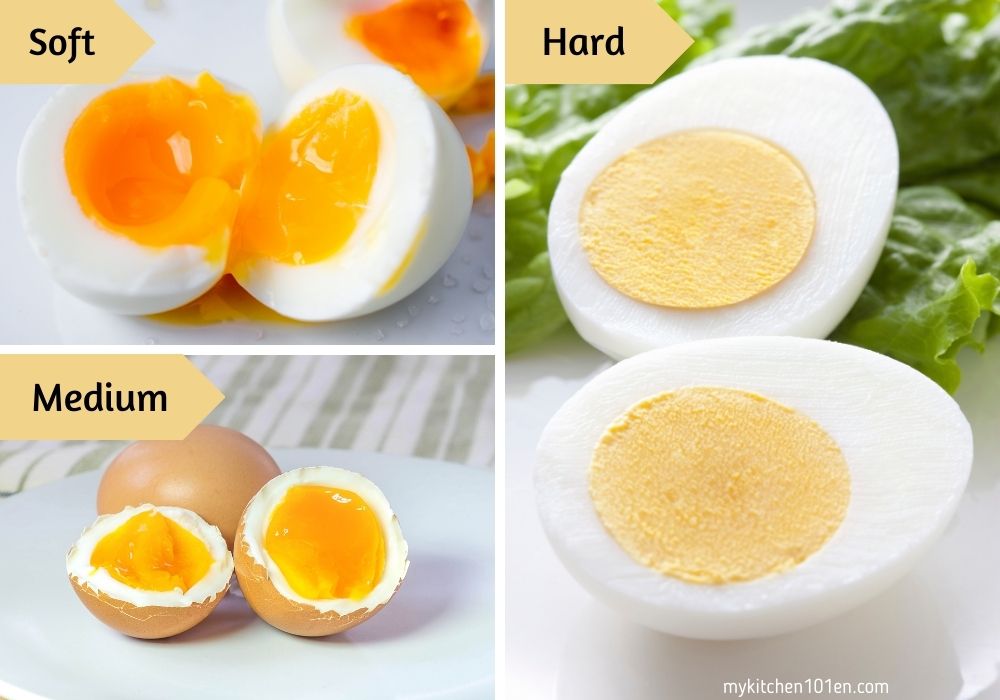
Ah, the age-old debate of how long to cook your hard-boiled eggs for that perfect yolk consistency. Some people like their yolks soft and runny (like me), while others prefer them fully cooked and crumbly.
So how do we achieve that perfect balance? It all comes down to timing – and I’m not talking about just guessing how long to boil your eggs for.
The key is to carefully monitor the cooking process by using a timer or watch. For soft-boiled yolks, cook for 4–6 minutes; medium eggs need 7–9 minutes; and hard-boiled ones can take anywhere from 10 to 12.
However, keep in mind that different stovetops may affect cooking times slightly so adjust accordingly if needed.
The yolk’s color: The color of an egg yolk can vary from light yellow to deep orange, depending on the hen’s diet. A diet rich in carotenoids, such as marigold petals and certain vegetables, can result in a darker yolk color.
Decorating your Hard-Boiled Eggs: Fun ideas for decorating your cooked eggs for Easter or other occasions
Now that you’re confident with how to make boiled eggs, try these tips for creating your own decorative masterpieces. Who says hard-boiled eggs have to be boring and plain?
Let’s jazz them up! For Easter, try dyeing your eggs with natural food coloring or even painting them with intricate designs. You can also use stickers, glitter, or ribbons for a festive touch. But why limit yourself to just Easter?
Hard-boiled eggs can be transformed into adorable characters by using various types of fruits and veggies as facial features. Make a bunny rabbit by using two small carrot pieces as ears and a sliced olive for the nose.
Hard-boiled eggs are often used as a canvas for artistic creations. In many cultures, people decorate and dye eggs to celebrate various holidays and traditions, such as Easter and Nowruz.
Or create a chick by adding two small pieces of carrot for its feet and an olive slice for the eyes. The potential for decorating hard-boiled eggs is limitless—so let your imagination soar!
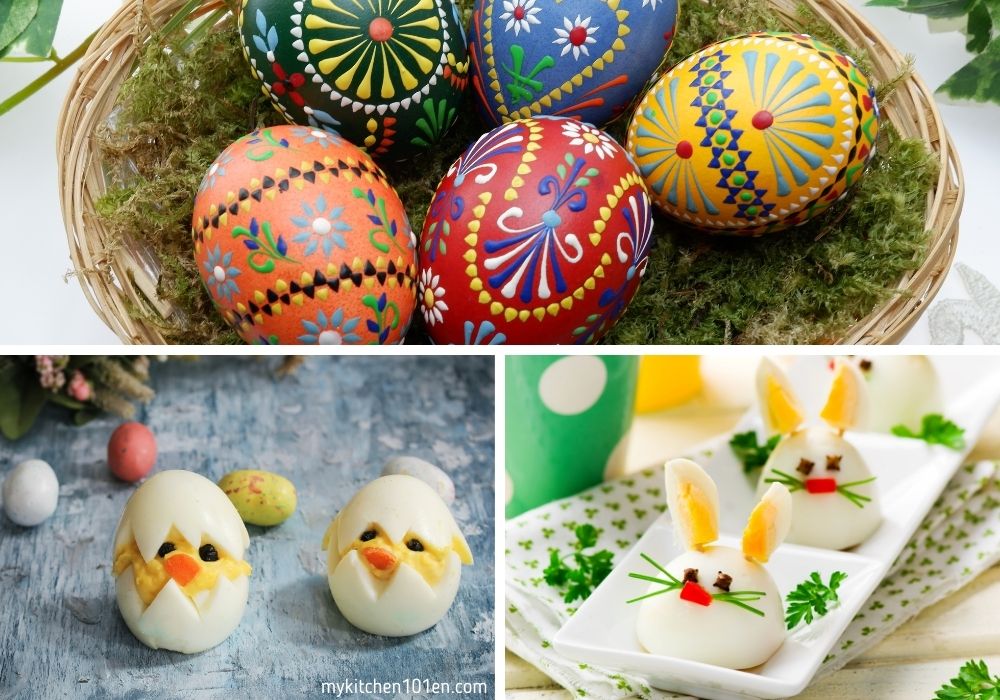
Troubleshooting Tips:
Overcooked Eggs – The Green Yolk Dilemma
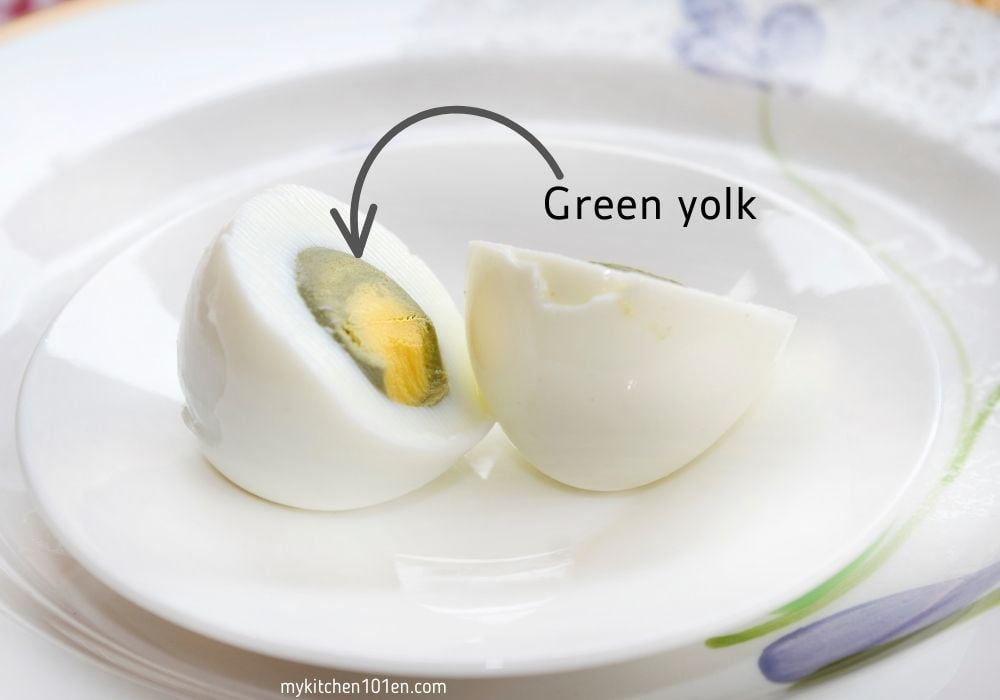
Somehow, even though you’re sure you boiled your eggs for the right amount of time when you crack them open their yolks have this unappetizing green color; it’s happened to all of us. Fear not, my fellow egg enthusiasts, because I am here to help you avoid this disastrous mistake.
First and foremost, timing is key. The ideal time for hard-boiled eggs is 9-15 minutes after the water has come to a full boil. Overcooking your eggs can lead to a hard yolk and a greenish tinge. Set a timer or use an egg timer app to ensure that you get it perfect every single time.
Another tip is to avoid using high heat when boiling your eggs.
Cooking at over high heat can cause the outer layer of the yolk to cook faster than the inner layer leading to that dreaded green ring around the outside of your yolk.
Keep a low-medium heat after boiling and follow our timing guidelines for the best results.
Cracked Shells – Don’t Panic!
Picture this: You’ve gone through all the necessary steps for cooking perfect hard-boiled eggs; you’ve washed them carefully and placed them in boiling water only to hear an ominous cracking sound coming from one of your precious eggs. Don’t give up just yet!
One solution is to add vinegar or salt to your boiling water mixture as it helps coagulate or solidify any leaked egg whites thus preventing them from oozing out further. Additionally, if only one egg cracks while boiling be sure not to overcrowd that particular location – this will prevent further cracking.
If some liquid does leak out after cracking occurs don’t worry too much as long as it’s just some liquid, it won’t affect the taste of your eggs. Nonetheless, it’s essential to cook your eggs for a little longer than usual to make sure that any leaked liquid has solidified.
Follow our detailed instructions, avoid overcooking, and carefully manage cracked shells in order to enjoy perfectly cooked hard-boiled eggs every time! Remember, practice makes perfect – so get cracking!
Recap of Key Points
Let’s recap the key points to cook a perfect hard-boiled egg. It requires few ingredients and basic equipment such as a pot, water, and eggs. The key to getting perfectly cooked hard-boiled eggs lies in the timing and cooling process.
- To begin, always start by selecting fresh eggs from a reliable source.
- To prepare eggs, wash them thoroughly to remove any debris or bacteria on the shell.
- In order to boil your eggs, first bring water to a rolling boil in a pot.
- Then, gently place your selected eggs into the boiling water with care so as not to crack any of them.
- Next comes timing: for soft yolks cook for 6-8 minutes; for medium yolks cook for 9-12 minutes; while hard-cooked take about 13-15 minutes depending on altitude. Remember this time starts as soon as you introduce the egg into boiling hot water!
- Comes cooling: after cooking the egg immediately transfer it into an ice-cold water bath with lots of ice cubes. This helps stop further cooking thereby giving your yolk that nice yellow color we all love.
Encouragement to Try New Recipes Using Hard-Boiled Eggs as an Ingredient
Now let’s combine hard-boiled egg with other ingredients to make a new dish. From salads to sandwiches, soups to stews, and even curries, they add flavor and nutrition to each bite.
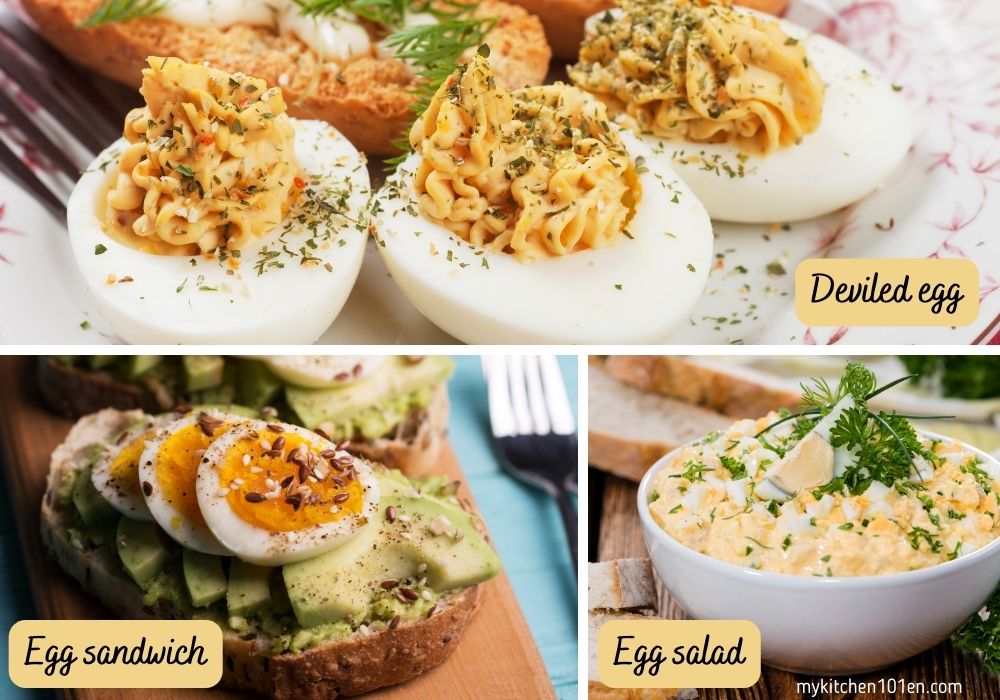
- Breakfast sandwich: For instance, if you are looking for something quick and easy yet filling breakfast then try making toasted bread topped with avocado slices followed by sliced boiled eggs sprinkled with black pepper or paprika seasoning – voila! You have yourself a delicious breakfast sandwich ready in mere minutes.
- Deviled eggs: Another recipe worth trying is deviled eggs; mix mashed avocado with some soft cream cheese then fill each halved egg white with the mixture, sprinkle with paprika seasoning, and enjoy as a snack or appetizer, especially on those warm summer days.
- Egg salad: This meal takes no time to prepare and is sure to please. Simply mash some peeled boiled eggs with your preferred seasonings and mix in some mayonnaise before serving it with crackers or bread.
Don’t hesitate to experiment and try new recipes using this highly nutritious ingredient!
Conclusion
And here you go – a comprehensive guide to cooking the perfect hard-boiled egg for beginners. With these tips, you’ll soon be a cooking pro! Whether you enjoy your hard-boiled eggs on their own, in salads, or deviled—you can now make them effortlessly every time! So go ahead and get cracking – your perfectly cooked hard-boiled eggs await!
Cooking Times for Hard-Boiled Eggs: Key Takeaways
| Yolk Consistency | Cooking Time | Note |
|---|---|---|
| Soft | 6-8 minutes | Time starts when the egg is introduced into boiling water. |
| Medium | 9-12 minutes | Time starts when the egg is introduced into boiling water. |
| Hard | 13-15 minutes | Time starts when the egg is introduced into boiling water; cooking time may vary depending on altitude. |
FAQs for hard-boiled eggs
How long should I cook hard-boiled eggs?
For large eggs, cook them for 9-12 minutes. You can adjust the cooking time for medium or extra-large eggs (reducing it for medium, increasing it for large).
How do I tell if my eggs are fresh or old?
Perform the water test by placing the egg in a bowl of water. If it lies flat on the bottom, it’s fresh. If it stands upright or floats, it’s older and better for hard-boiling.
Can I use eggs straight from the refrigerator for hard-boiling?
Yes, you can. However, bringing them to room temperature before boiling can help prevent cracking due to sudden temperature changes.
Why do some recipes recommend adding salt and vinegar to the water?
Adding salt and vinegar to the water you use when boiling eggs makes it easier to remove their shells. The salt helps to firm up the egg white, while the vinegar softens the shell.
How do I peel hard-boiled eggs without making a mess?
Gently tap the egg on a hard surface to create several cracks in the shell. Roll the egg between your hands or on the countertop to loosen the shell further. Start peeling at the large end of the egg, where there’s usually an air pocket. Hold the egg under cold running water as you peel to help rinse away any small shell fragments.
How long can I store hard-boiled eggs?
You can be stored it in the refrigerator for up to one week. Place unpeeled eggs in a covered container or a resealable plastic bag. Always store peeled eggs with a damp paper towel in their container to prevent them from drying out.
Can I freeze hard-boiled eggs?
It’s not recommended to freeze whole hard-boiled eggs due to texture changes. However, you can freeze the yolks if needed. Freezing the whites is not advised, as they will become rubbery upon thawing.
